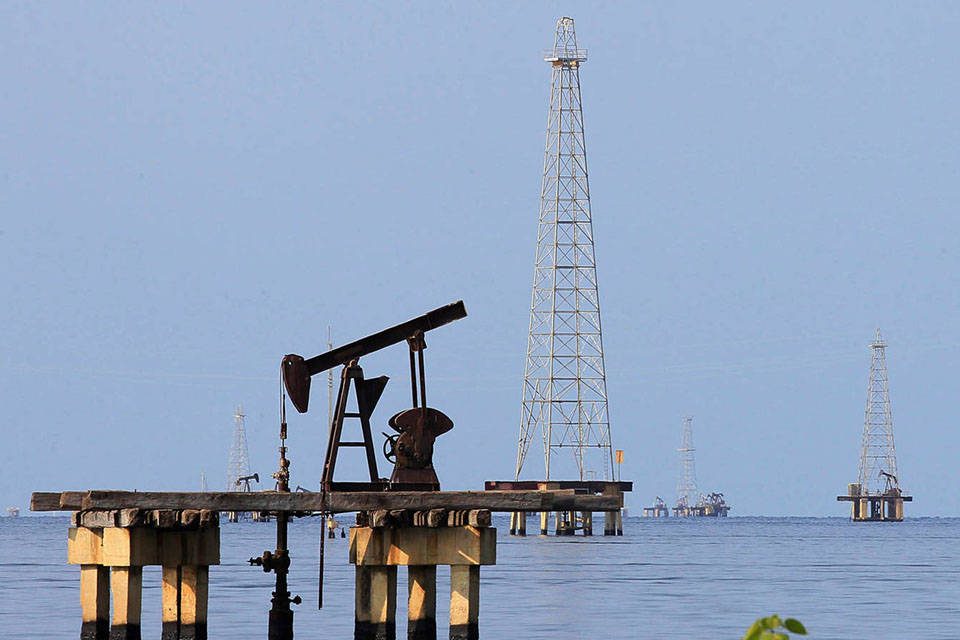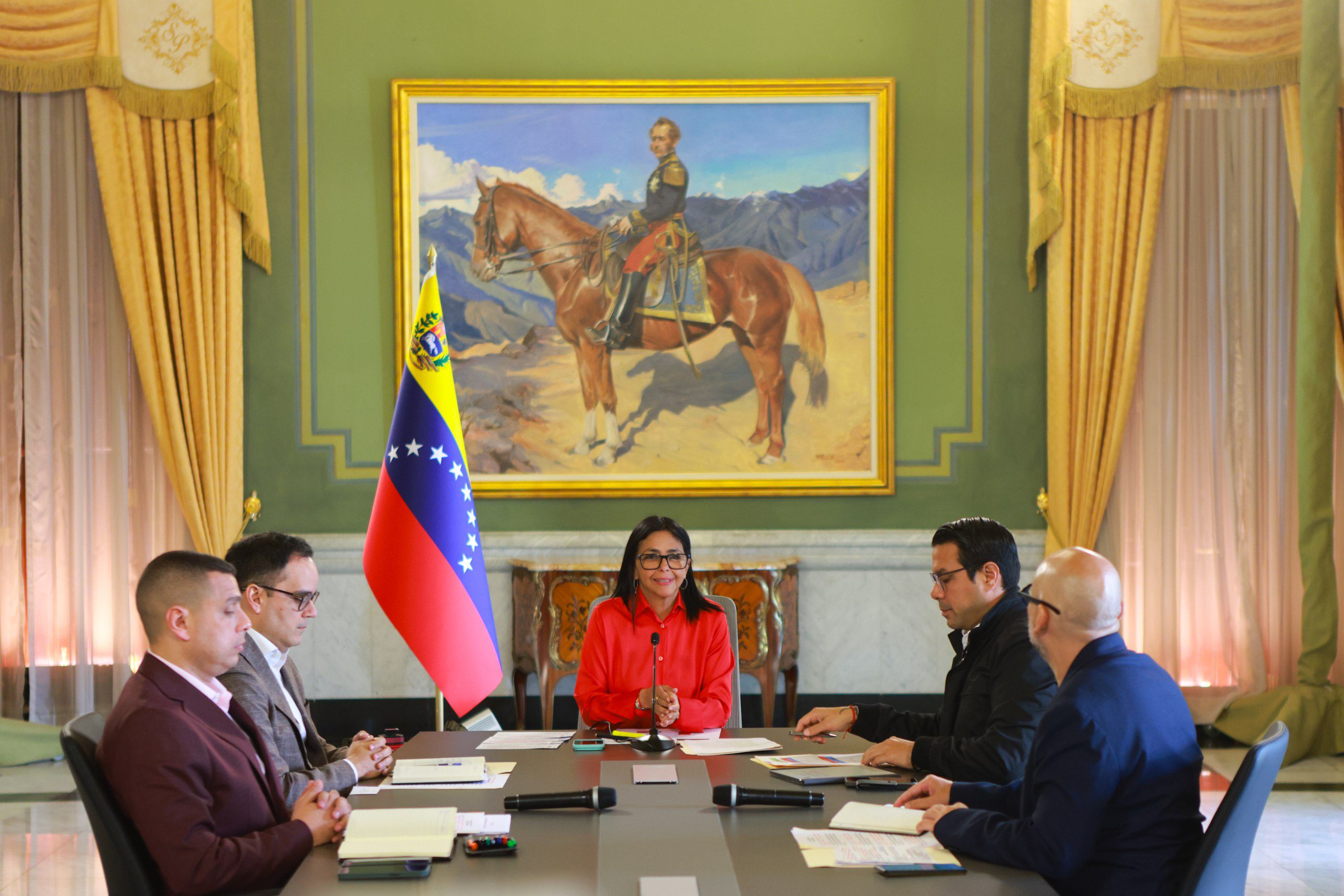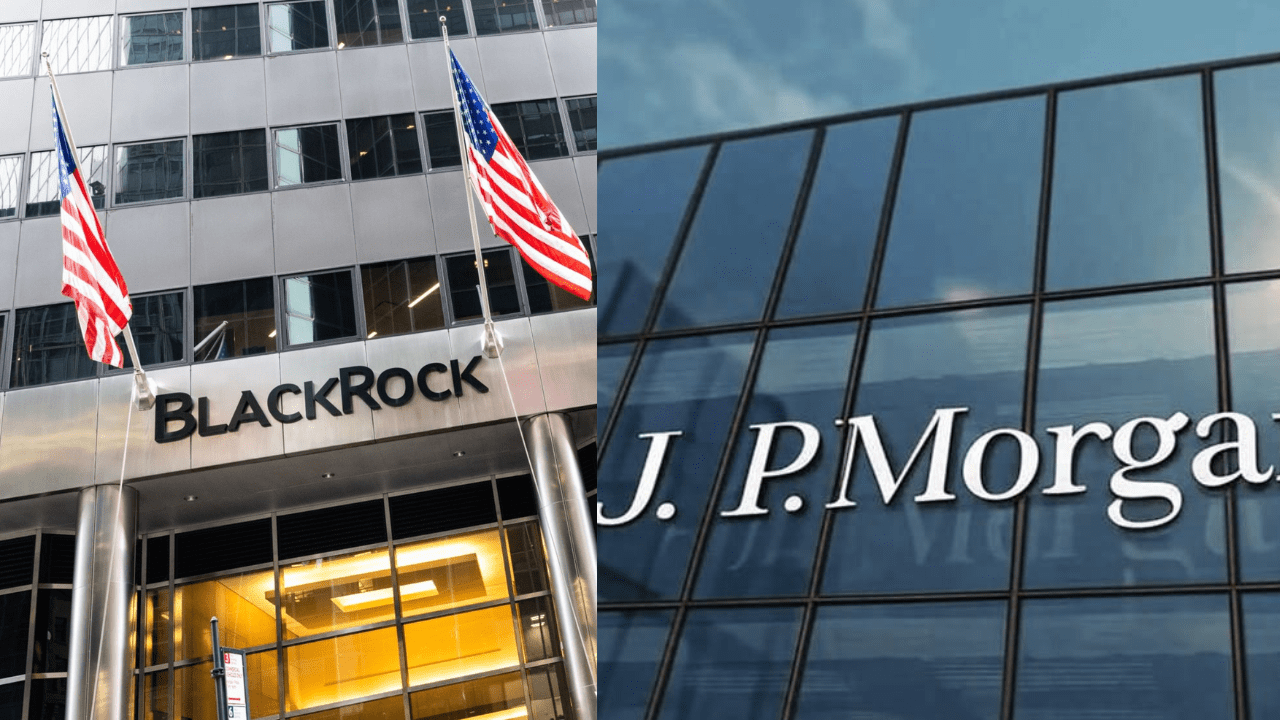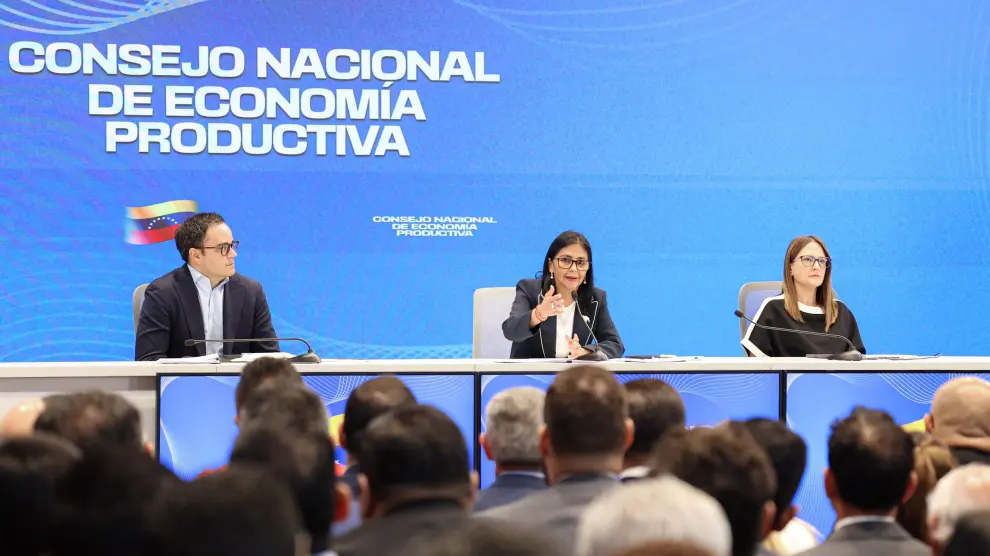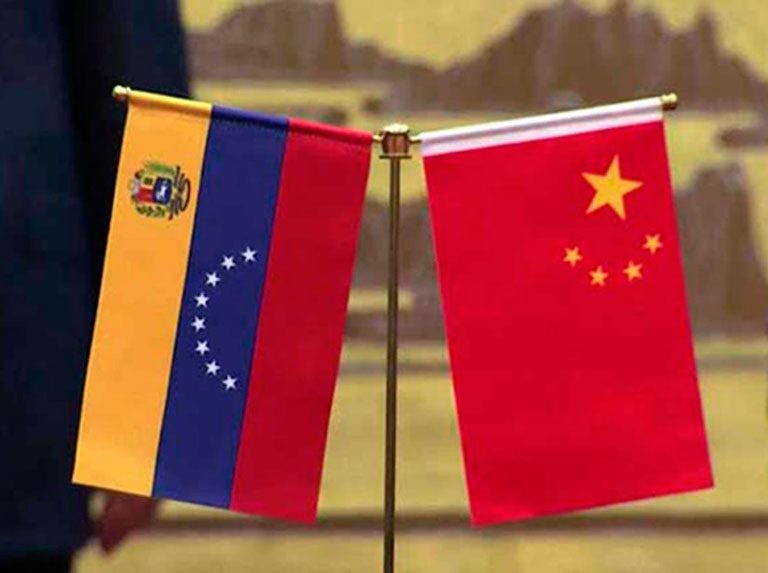Nicolás Maduro at the symbolic handover of a gold ingot to the Central Bank of Venezuela during the Expo Metal in Puerto Ordaz, Bolívar. Photo: Presidential Press, Irmary Díaz.
Guacamaya, April 16, 2025. On April 11, Nicolás Maduro restructured the board of directors for the Central Bank of Venezuela (BCV) following the resignation of two of its members. The institution is now chaired by Laura Carolina Guerra, while the Minister of Finance and Economy, Anabel Pereira, is the new representative of the national executive on the board.
The restructuring takes place at a complex time, amid a sharp devaluation of the bolívar and just after the National Assembly approved an economic emergency decree.
Guerra has previously led the Social Protection Fund for Bank Deposits (Fogade), the National Development Fund (Fonden), and the National Superintendency of Internal Audit (SUNAI).
The new board also includes Luis Alberto Pérez González, Christian Martell Ramírez, Carlos Cestari Infantini, Christiam Hernández Verdecanna, and Santiago Armando Lazo Ortega.
The reasons for the change in the BCV’s leadership remain unknown. Neither the government nor the financial institution has offered explanations, nor have they responded to journalists’ inquiries about the resignations or new appointments.
According to Bloomberg, two female directors of the BCV resigned in early April after opposing a plan to incorporate gold from mines not subject to international regulations. They were reportedly Sohail Hernandez, then first vice president, and Iliana Ruzza, vice president of international operations. However, no other source has confirmed the claims made by the U.S. news outlet.
On March 24, the Venezuelan president announced that one ton of gold ingots was being delivered to the BCV. This gold would come from Venezuela’s domestic production but without following international certification standards. As of today, it would be worth $104 million.
Since the second half of 2024, Venezuela has also experienced a sharp and sustained devaluation, while the gap between the official exchange rate and the black market rate (known as the “parallel dollar”) has widened. On April 11, the gap stood at 30%, with the BCV reporting 77 bolívars per dollar compared to 101 bolívars per dollar on the black market.
State institutions, such as the Ministry of Economy and Finance and the BCV itself, have also not provided explanations for the devaluation or the exchange rate gap.
Maduro’s government has faced obstacles in accessing its international reserves, most of which are frozen or out of reach for other reasons. Due to difficulties in paying debts, several foreign assets also risk being seized by creditors of the Republic or PDVSA.
The BCV holds 31 tons of gold in the Bank of England’s vaults, but British courts argue that it is unclear who the legitimate representatives of the Venezuelan state are since the creation of the “interim government” led by Juan Guaidó. The body now known as the “2015 National Assembly” also controls several BCV accounts abroad and prevents Caracas from accessing other reserves, such as the International Monetary Fund’s Special Drawing Rights.


